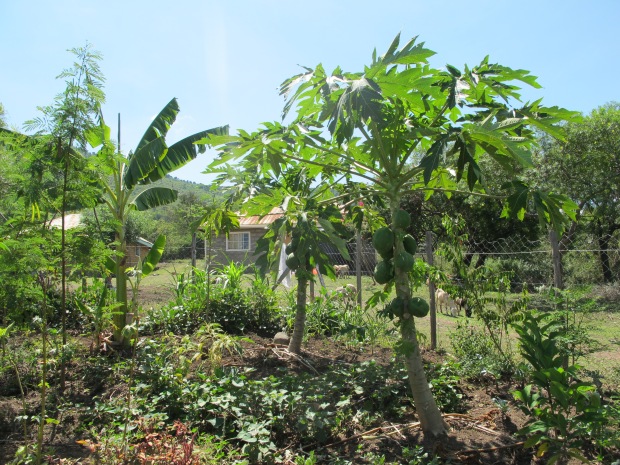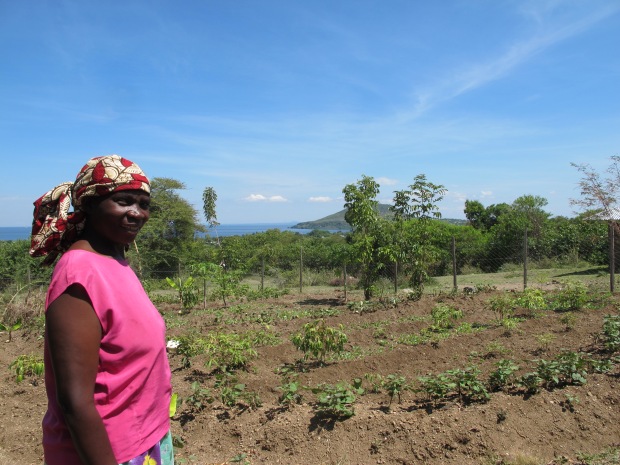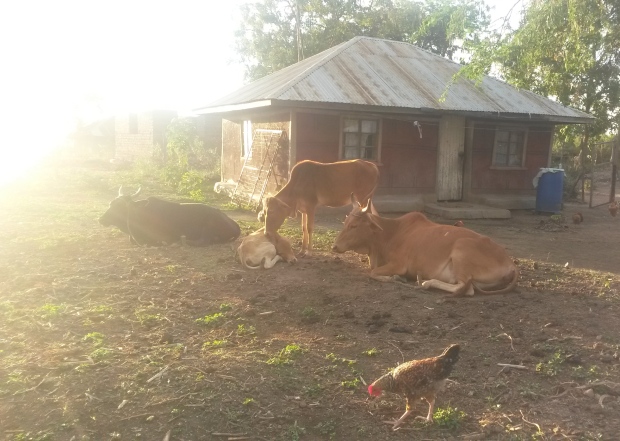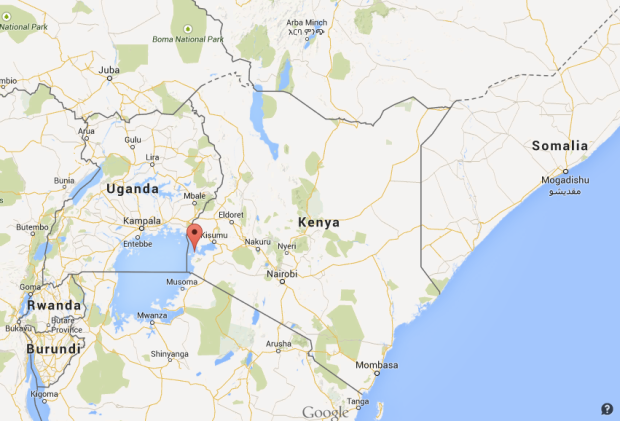Rusinga Island. With a brilliantly unimaginative name – literally “Island Island” when translated from the local Suba dialect – Rusinga is attached to the Kenyan mainland by a tiny causeway used by humans on foot or motorbike, donkeys, goats and the odd family of hippo. It sits in the vast Lake Victoria, a lake “discovered” in 1856 by the much reviled (by me, a few friends and Dawn M Brody) British explorer John Hanning Speke who had a penchant for shooting pregnant animals and stealing the thunder from truly great British explorers such as Sir Richard Burton. Moving swiftly on…
As my time in Kenya draws scarily to a close, I’ve come to spend a few weeks on this gloriously sleepy island, escape the chaos and congestion of Nairobi, and learn about a young project with a grand vision.
I’ll take a step back here and do some explaining.
Dennis, my host on Rusinga and the project’s founder, was community worker by profession. A few years ago he found himself faced with the classic dilemma of his trade: “I work with all these communities far and wide around the country, but why not my own?” Soon enough the question was too compelling to ignore and so he moved home with a sophisticated brick making technology and the aim of building better homes for the people he grew up with. The thing was, people certainly could have done with better homes, but what was really needed was better food.
Rusinga isn’t traditionally an island of farmers; it’s an island of – surprise, surprise – fishermen which, I have to admit, I didn’t really appreciate the first time I visited a few months ago. The tiny space is appears to be packed with shambas (small holdings) but with my uneducated eye I didn’t recognise unsophisticated and inefficient use of space when I saw it. Most people practice monoculture on what space they have. In other words, they grow maize and millet and that is just about it. What’s more they usually only grow for two months of the year when the rain falls heavily enough to make it viable.
Unable to survive on maize alone, people need to earn money to buy the other crops they need and put a nutritious meal on the table. But with fish stocks in huge decline due to overfishing and run-off from farms polluting the water, income from the traditional livelihood in the area was diminishing.
Dennis wasn’t an agriculturalist by background either but some digging around connected him to permaculture and soon an idea formed. He saw that there was land enough that, if islanders were taught principles of proper soil stewardship, crop diversification, rain water harvesting and the importance of going organic, then a grand and beautiful vision might be possible: to turn Rusinga into an island that could feed itself.
A year on and Dennis now has a small collective of farmers working hard to change their lives by changing how they farm. The group has 21 members but there are over 100 eager people on a waiting list clamouring to be involved. Each farmer gets a fence (to stop the roaming cows and goats from munching through their crops), a rainwater harvesting tank and training in permaculture design.

Paul, the wisest twenty four year old I’ve ever met, is their Permaculture Advisor, there to advise on all sorts of matters and gently chide when they leave their swales unweeded for too long or dig too few beds. He’s also been my guide, patiently tutoring me until I can name all sorts of traditional vegetables and rank the farms’ performances out of ten. And so far what I’ve seen are farms teaming with crops and happy farmers who not only have plenty of food but are also able to sell their excess produce at the local market.

Even better, at every stop I seem get a treat! Passion fruit or papaya plucked from the tree, entires poles of sugar cane cut down, cassava dug out from the soil. Quite simply, it’s heavenly.

At the end of the day, with the light gone by 7pm, I sit with Dennis and listen to his plans for the future of RIOFA and the challenges of spreading a a model of development to a community used to traditional forms of aid involving cash hand-outs and “seating allowances” just for attending trainings. Dennis worries about getting on the wrong-side of the local government and about the competing visions for development where most people dream of a big supermarket moving to the nearest town. But he seems to get some reassurance when I tell him we haven’t yet got it “sorted” in the west as many people here seem to believe.
I’m here for three weeks. Hopefully I can help a little: with encouragement, fundraising advice and a little bit of website making! But three weeks already seems too short and the thought of leaving a little painful. Aside from the joy of being able to watch such a tangible, ambitious project growing, I also get the joy of waking up to this little family every morning.

And this view at night. Maybe I’ll have to take up one of the marriage offers to get myself some land…even if it does involve second wife status!
